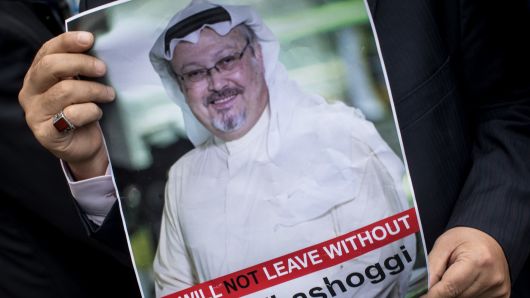Saudi Arabia admits Khashoggi died in consulate
- Russia threatens retaliation over U.S. 'break-in' at consulate
- Dutch police deport Turkish minister to Germany after barring her from consulate in Rotterdam
- Japan PM Abe, U.S. President Trump to hold summit on Sept 26
Saudi Arabia’s acknowledgement that Khashoggi died came after two weeks of denials and growing demands from Western allies for an explanation over Khashoggi’s disappearance, which galvanized a global outcry and prompted some U.S. lawmakers to call for harsh action against Riyadh.
 |
| Saudi Arabia admits Khashoggi died in consulate |
Saudi state media said King Salman had ordered the dismissal of two senior officials over the incident: Saud al-Qahtani, a royal court advisor seen as the right-hand man to Crown Prince Mohammed bin Salman, and deputy intelligence chief Ahmed Asiri, a statement on state media said.
“I think it’s a good first step, it’s a big step. It’s a lot of people, a lot of people involved, and I think it’s a great first step,” Trump told reporters.
“Saudi Arabia has been a great ally. What happened is unacceptable.”
Though Trump said Riyadh’s account was credible, it drew doubt from some U.S. lawmakers.
Khashoggi, a critic of the crown prince, went missing after entering the consulate on Oct. 2 to obtain documents for his upcoming marriage. Days later, Turkish officials said they believed he was killed in the building, an allegation that Saudi Arabia had, until now, strenuously denied.
In a separate statement on Saturday, the Saudi public prosecutor said a fight broke out between Khashoggi and people who met him in the consulate, leading to his death.
“The investigations are still underway and 18 Saudi nationals have been arrested,” the statement said.
The disappearance of Khashoggi, a U.S. resident and Washington Post columnist, had led to mounting pressure from the West on Saudi Arabia to provide convincing answers.
Before the Saudi announcements, Trump said he might consider sanctions, although he has also appeared unwilling to distance himself too much from the Saudis, citing Riyadh’s role in countering Iranian influence in the Middle East and lucrative potential arms deals.

